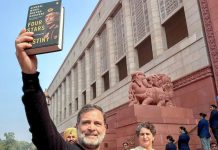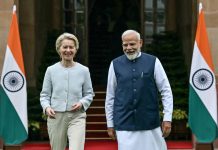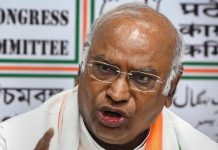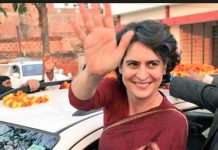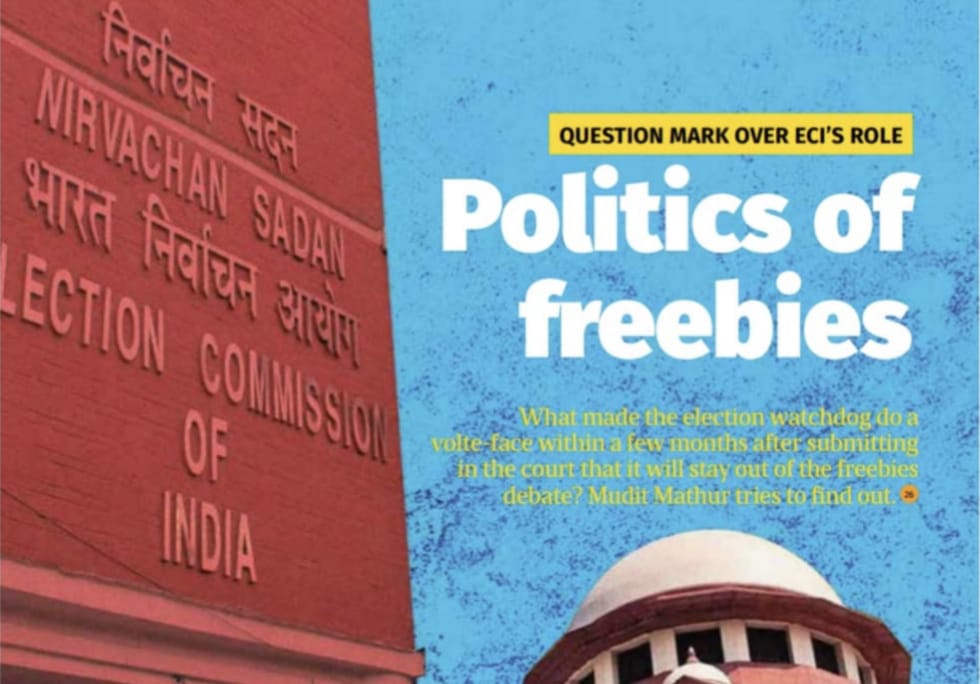
What made the election watchdog do a volte-face within a few months after submitting in the court that it will stay out of the freebies debate? Mudit Mathur tries to find out.
Interestingly, in wake of impugned 2013 directions of the apex court, the Election Commission of India (EC) has now proposed amendments in its Model Code of Conduct (MCC) providing adequate disclosures on the financial implications of the promises made by the political parties for ‘enabling’ electorate to make informed electoral choices. The EC directive to all the political parties came amid ongoing constitutional debate before the Supreme Court over the issue of rational distinctions between welfare schemes, socio-economic concessions and poll-time announcements of material goods and items (freebies) as incentives to attract votes. The neutrality of the election watchdog has again come under a cloud and raised grave concern with regard to its declining credibility as an independent constitutional authority in Indian democracy.
Now, the apex court would examine as to whether MNREGA, Mid-Day Meal, free supply of food grains, electricity, free education to girls, direct benefit cash transfer schemes like farmers pension and other subsidies, universal healthcare and immunisation schemes, distribution of laptops and tablets to students amount to freebies? Can access to drinking water, housing to weaker sections and distribution of free consumer electronics items be treated as freebies? Whether the schemes envisaged to achieve welfare measures mandated under the Directive Principles of State Policy could be termed as freebies aimed to woo the electorate during electioneering?
The apex court agreed to revisit its ruling delivered in 2013 in the case of S. Subramaniam Balaji v. State of Tamil Nadu to a larger bench of three judges wherein it was held that pre-election promises do not fall within the ambit of corrupt practices under the Representation of the People Act, 1951, and issued directions to the Election Commission of India regarding framing of certain guidelines, in the absence of any legislative enactment covering the field. It also held that the provisions of the Representation of the People Act (1951) place no restraint on the power of the political parties to make promises in their election manifesto. The Court had added that the manifesto of a political party is a statement of its policy and the question of implementing it arises only if the political party forms a government.
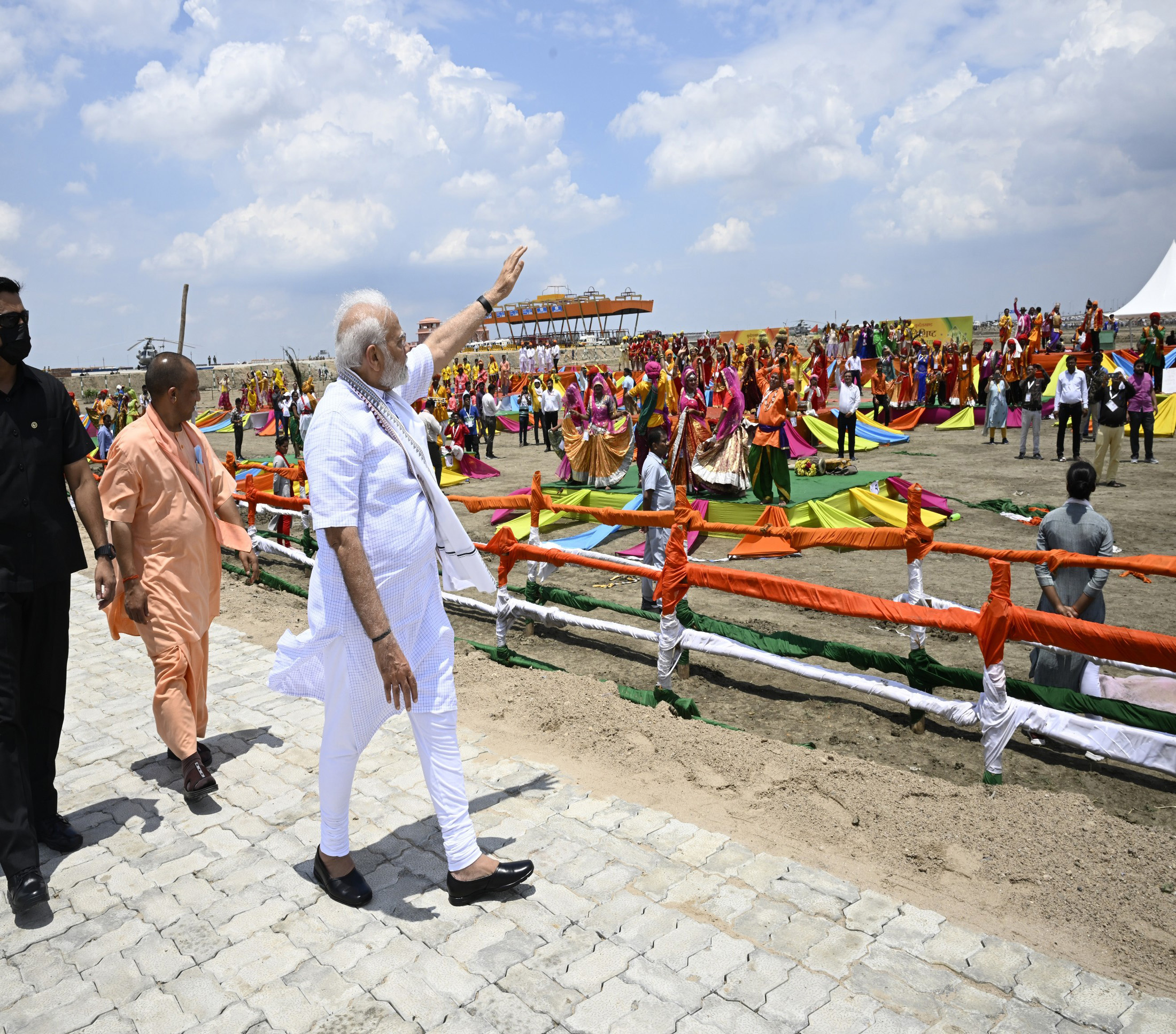
In its affidavit filed in April 2022, the EC had told the Supreme Court that “…offering/distribution of any freebies either before or after election is a policy decision of the party concerned, and whether such policies are financially viable or its adverse effect on the economic health over the state is a question that has to be considered and decided by the voters…The Election Commission of India cannot regulate state policies and decisions which may be taken by the winning party when they form the government.” But after Prime Minister Narendra Modi’s “Revri” remarks, it took just a U-turn to initiate a change in MCC.
It was argued before the apex court that the reasoning in the above judgment is flawed as it had not considered various provisions of the Representation of the People Act, 1951. It was also submitted that the judgment incorrectly implies that the Directive Principles of State Policy can override the fundamental rights under Part III of the Constitution, which is against the law settled by a Constitution Bench in the historic Minerva Mills Ltd. Case.
Looking into the complexity of the issues involved, and the prayer to overrule a judgment delivered by its two Judge Bench in S. Subramaniam Balaji case, the Bench headed by Justice N.V. Ramana with justices Hima Kohli and CT Ravikumar directed listing of these set of petitions before a three Judge Bench. The Bench also framed three larger issues for judicial determination;
- What is the scope of judicial intervention with respect to the reliefs sought in the present batch of petitions?
b. Whether any enforceable order can be passed by this Court in these petitions?
c. Whether the appointment of a Commission/Expert Body by the Court would serve any purpose in this matter? Additionally, what should be the scope, composition, and powers of the said Commission/Expert Body?
In its detailed orders, the Bench also observed, “There can be no denying to the fact that in an electoral democracy such as ours, the true power ultimately lies with the electorate. It is the electorate that decides which party or candidate comes to power, and also judges the performance of the said party or candidate at the end of the legislative term, during the next round of the elections. It is also necessary to highlight herein the point raised by some of the interveners, that all promises cannot be equated with freebies as they relate to welfare schemes or measures for the public good. Not only are these a part of the Directive Principles of State Policy, but are also a responsibility of the welfare state. At the same time, the worry raised by the petitioners herein, that under the guise of electoral promises, fiscal responsibility is being dispensed with, must also be considered.”
“The Election Commission cannot regulate state policies and decisions which may be taken by the winning party when they form the government. Such an action without enabling provisions in the law, would be an overreach of powers.” The EC clarified that it does not have power to deregister a political party, except on three grounds, which were outlined by the top court in case of Indian National Congress Vs Institute of Social Welfare and others (2002).
The Election Commission of India has consistently taken a stand before the Court that it has limited scope to interfere in such promises which are made by political parties/candidates. “Offering/distribution of any freebies either before or after the election is a policy decision of the party concerned and whether such policies are financially viable or its adverse effect on the economic health of the state is a question that has to be considered and decided by the voters of the state,” EC reiterated in its affidavit.
The Solicitor General Tushar Mehta supported the PIL filed by BJP leader and Supreme Court Advocate Ashwini Kumar Upadhyay against freebies as pre-election promises, which can have a large-scale impact on the economy of the State. The PIL highlights that such pre-election promises are made by political parties without any assessment of the financial implications on the State and is nothing but an attempt to attract the votes. This goes against the spirit of responsible electioneering and is adversely affecting free and fair elections. This severely affects the level playing field between the different political parties. The money that is being paid by the taxpayers is ultimately being misused for political parties/candidates to gain or retain power.
In this backdrop, the U-turn taken by the EC triggered political controversy with regard to alleged overreach of powers by the Election Commission of India beyond its constitutional mandate, undermining the faith in the electoral democracy, when it attempted to introduce a proforma seeking disclosure of financial impact of poll promise and its proposed source of funding by amending Model Code of Conduct. The EC suggested that political parties making election promises should provide authentic information to the voters so that they can assess the financial viability of their promises. A consultation paper is likely to be moved which proposes that parties detail the cost of promises made ahead of polls and to compare them to the state of their financial resources to give voters an idea about how these could be achieved.
The shift in the Election Commission’s stand on the issue occurred soon after Prime Minister Narendra Modi made a barely veiled attack on Aam Aadmi Party chief Arvind Kejriwal over his poll promises offering free electricity, free health-care, free education, waiver of electricity bills and farm loans. The BJP, it may be mentioned, had suffered a major setback in the recently held Punjab assembly elections after Kejriwal regained power for the second time in Delhi. Kejriwal is posing a major challenge in upcoming Gujarat and Himachal Pradesh elections to the ruling BJP and thus, has been under attack from the rank and file of saffron party.

Targeting his political opponents and accusing them of promising freebies in exchange for votes, Modi termed it is “very dangerous” for the country – its development and well-being. “Today, attempts are being made in our country to collect votes by distributing free ‘Revdis’ (freebies). This ‘Revdi’ culture is very dangerous for the development of the country. People of the country, especially the youth, need to be careful of this ‘Revdi’ culture. People of ‘Revdi’ culture will not build expressways, airports or defence corridors for you,” he cautioned.
“They feel that by distributing free ‘Revdis’ to people, they can buy them. Together we need to defeat this thinking of theirs. The ‘Revdi’ culture needs to be removed from the country’s politics. Away from the ‘Revdi’ culture, we are living up to the expectations of people,” said Modi while addressing public meeting at Kaitheri in Jalaun district after inaugurating the Bundelkhand Expressway.“Poll freebies increase taxpayers’ burden, prevent the country from becoming self-reliant and block investments in new technologies,” Modi said while dedicating a modern ethanol plant of Indian Oil Corporation (IOC) at Panipat through video conferencing. He said that the act of giving away freebies is not in the interest of the country and will push the nation back. Similar thoughts were echoed by him on other public forums in Gujarat which was followed by his social media army disseminating his views to millions of people.
Reacting to Prime Minister’s attack, Delhi Chief Minister Arvind Kejriwal said, “There are allegations being levelled against me that Kejriwal is distributing free ‘Revdis’, he’s distributing freebies… I’m giving free and quality education to the children of poor and middle-class households in Delhi. I want to ask people, am I distributing free ‘Revdis’ or strengthening the foundation of the country?”
The Dravida Munnetra Kazhagam (DMK) have also hit out at the Centre over the freebies row. The party has opposed the suggestion for setting up an expert panel to examine the matter, saying that “…the scope of a “freebie” is very wide and there are a lot of aspects which are to be considered.
“A welfare scheme introduced by a State Government cannot be judged to be classified as a freebie. The ruling government at the Union giving tax holidays to foreign companies, waiver of bad loans of influential industrialists, granting crucial contracts to favoured conglomerates etc. also have to be considered and cannot be left untouched,” DMK said before the apex court as interveners.
The Rajya Sabha member of Rashtriya Janata Party, Manoj Kumar Jha termed the EC order proposing mandatory disclosure of the “financial implications” of the promises made in manifestos by political parties as “Institutional overreach” and said, “One wishes that the Commission and other independent bodies showed similar enthusiasm around the issues related to Electoral Bonds.” “Two contrasting statements by the ECI in five months raise questions about its independence. Interestingly, the ECI’s letter came after the contentious ‘Revdi culture’ remark by the Prime Minister about freebies offered by political parties. Independent watchdog institutions taking cues from the government do not augur well for the health of democracy in the country, especially when such talking points demean rights-bearing citizens as passive recipients of dole,” he opined in his write up.
The Congress general secretary in-charge of communications Jairam Ramesh said, “The Election Commission’s recent proposal to change the model code goes against the spirit of competitive politics and will be “yet another nail in the coffin of democracy.” “It was simply not the business of the Election Commission” he added. “None of the welfare and social development schemes that have been transformational over the decades would ever have become a reality if such a bureaucratic approach had been in place,” Ramesh remarked. He was of the view that the proforma proposed by the EC “looks like the function of the Executive”.
Rajasthan Chief Minister Ashok Gehlot spoke about the issue on Independence Day during the state’s flag-hoisting ceremony: “Public welfare is the top priority of the state government. Weekly payment is made to the poor and elderly in developed countries. Everyone has the right to live,” he said, adding: “It is the responsibility of a government to implement public welfare schemes.”
A day after the EC wrote its letter, the Communist Party of India-Marxist (CPI-M) in a statement hit out against it, terming it an “unwarranted move.” The EC had recently declined to be a part of a committee to examine the issue of freebies as proposed by the Supreme Court, which was hearing a Public Interest Litigation seeking regulation of freebies announced by parties. In July, Prime Minister Narendra Modi’s statement that “Revdi culture” or offering freebies was dangerous for the development of the country had stoked debate.

“The Election Commission had, in an affidavit to the Supreme Court in April, stated that the Commission cannot regulate policy decisions of political parties and that it would be an overreach of its powers. It is surprising that the Election Commission has now taken a contrary stand. Is this due to pressure being exercised by the executive?” the CPI(M) asked.
Rajya Sabha MP Kapil Sibal on October 5 took a dig at the Election Commission of India (ECI) proposing a change in the model code to ask political parties to provide authentic information to voters on the financial viability of their poll promises, saying maybe the poll watchdog itself needs a model code of conduct. “Election Commission does a U-turn after filing an affidavit in Supreme Court that it will stay out on freebie debate. Would amount to overreach. Now wishes to include it in the Model Code of Conduct. Maybe the EC itself needs a Model Code of Conduct!” Mr. Sibal tweeted.
The EC has asked all recognised national and state political parties to provide authentic information to voters on the financial viability of their poll promises, saying inadequate disclosures have far-reaching ramifications. The EC proposed a format for the parties to declare the information, including the extent of coverage of a promise, the cost to the exchequer, the ways in which it would be paid for and the implications for the State or Union government’s finances. In addition, the EC proforma would also include details of the State or Union government’s receipts and expenditure that would be filled out by the Chief Secretary or Union Finance Secretary.
“Although implementation of election promises could have several ramifications, the Commission proposes to confine the disclosures to only the financial implications of the promises in terms of the financial resources required.” The poll panel said it is of the considered view that with adequate disclosures on the financial implications of the promises made, the Indian electorate will be able to make informed poll choices.
******
A case for making model code into law
The application of the code is purely left to the discretion of the EC, which is equipped with unbridled arbitrary powers without specific guidelines. Many argue that the best way to overcome allegations of bias and partiality is by legislating MCC as law with all clarity, writes Mudit Mathur

The Model Code of Conduct (MCC) is not a statute and therefore its implementation solely depends on the discretion of the Election Commission. There has been a debate as to whether the MCC should be made into an Act of Parliament?
However, the Election Commission has opposed this move on the grounds that the interpretation of laws by the courts will take a lot of time, whereas the Election Commission would prefer handling MCC violations swiftly using its discretionary powers. It is often blamed for showing undue indulgence favouring the ruling party in its overall functioning including divergent rulings for different individuals for seemingly similar kinds of MCC violations.
In 2017, the declaration of the schedule of the Gujarat elections was delayed. Opposition parties alleged that the ECI’s actions were intended to delay the application of the Model Code of Conduct so that the state’s BJP government could announce fresh initiatives to persuade voters to vote for the party.
It was also noticed that much before the announcement of election dates, ruling party members have publicly shared dates that matched exactly with what the ECI announced later on. It may be a coincidence but it damages the credibility of the institution that is supposed to ensure a “level playing field” for all parties.
The MCC does not specify the type of punishment that may arise from a violation of its provisions. There is no classification of violations based on the severity of the act. For instance, is a violation of the prohibition on appealing to religious sentiments more serious than making unsubstantiated allegations against an opponent ? How does the EC decide whether a certain speech should attract a censure, a 24-hour ban or a 72-hour ban? In the absence of specific punishments for each violation, the application of the code is purely left to the discretion of the EC, which is equipped with unbridled arbitrary powers without specific guidelines.
The absence of specific norms on exercising its powers can lead the EC to arbitrariness and individual bias. Mayawati was banned from public meetings by the EC for 48 hours, due to her appeal to Muslims to consolidate their votes to defeat the BJP, whereas Narendra Modi’s speech about how Rahul Gandhi is afraid of Hindus and hence selected a seat where “the minority is majority” was given a clean chit by the EC.
The EC issued an advisory prohibiting appeals to voters in the name of the defence forces; however, it went out of its way to overrule the opinions of the chief electoral officer of Maharashtra and that of the district election officer, to give a pass to Modi, after he sought votes in the names of the jawans who were killed in Pulwama.
Amit Shah, the then president of the BJP, made a communally charged remark saying that he cannot distinguish between a procession in Pakistan and a procession in Wayanad thereby trying to portray the Muslims in the region as Pakistanis. Yet, the Election Commission was unmoved by his remarks.
While the Commission swiftly acted against Maneka Gandhi, Mayawati and others in a matter of days, it kept sitting on the complaints against Modi and Shah, until it was forced to dispose of them after the Supreme Court imposed a deadline.
The failure to provide for decisions to be made within a certain time frame after a complaint is lodged, increases the possibility of misuse. The EC can sit on a complaint as long as it likes, even after the main phases of the election are over, because the MCC does not specify a timeline.
Such incidents raise apprehensions about the independence of the election watchdog. The executive controls the ECI’s finances and personnel appointments. It has often been seen as appointing pliant election commissioners to limit the agency’s authority internally.
There is a merit in demand to enact the MCC as a law, with clear procedures, clarity on the exact powers of the EC, classifying the punishments based on the severity of the violation, and placing a clear-cut time-bound procedure for following up on complaints. Getting the rules right is the best way to overcome allegations of bias and partiality and it can be done by way of legislating MCC as law with all clarity.
The success of Indian democracy depends on fair and credible functioning of its constitutional institutions including a free, fair and independent judiciary and impeccable Election Commission. We owe it to our people to build robust institutions with checks and balances to prevent abuse, since we cannot always depend on messianic personalities like T. N Seshan to maintain independent bodies without fear or favour.

